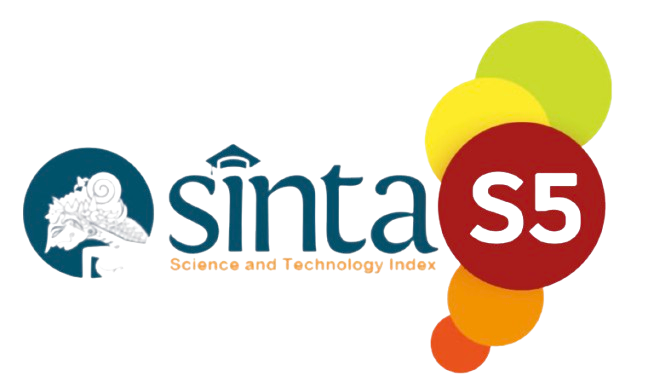AI and Gamification: Exploring the Integration of Generative AI in Interactive English Language Learning Apps
DOI:
https://doi.org/10.52217/ijlhe.v8i1.1772Keywords:
Artificial Intelligence, Engagement, Gamification, Language Learning, Personalized FeedbackAbstract
The rapid growth of artificial intelligence (AI) is reshaping education by providing innovative tools for enhancing learning experiences. In language education, AI-powered platforms, such as Generative AI, offer dynamic, real-time interactions that improve user engagement and learning outcomes. Despite the growing interest, limited research exists on integrating AI with gamification in language learning apps. This study aims to fill this gap by examining the impact of Generative AI and gamification on English language acquisition. A mixed-methods design was employed, combining quantitative and qualitative data collection approaches. The research utilized pre- and post-surveys, standardized quizzes, and semi-structured interviews to assess user engagement, motivation, and language learning improvements. A sample of 100-150 participants from UIN Raden Intan Lampung's Faculty of Syari'ah was selected to evaluate the AI-enhanced gamified system. The findings revealed a significant increase in user engagement, with a 35% improvement in session duration and a 28% rise in weekly usage frequency. Learning outcomes showed improvements in vocabulary acquisition, grammatical accuracy, and speaking fluency. The AI’s personalized feedback mechanism was highly rated, although some challenges with speech recognition and consistency in AI responses were identified. These results highlight the potential of combining Generative AI with gamification to enhance language learning experiences. The study implies that further refinement of AI features and regular content updates are necessary to sustain user engagement and optimize long-term learning outcomes.
References
Alkaissi, H., & McFarlane, S. I. (2023). Artificial hallucinations in ChatGPT: Implications in scientific writing. Cureus, 15(2), 1–4. https://doi.org/10.7759/cureus.35179
Alsawaier, R. S. (2018). The effect of gamification on motivation and engagement. The International Journal of Information and Learning Technology, 35(1), 56–79. https://doi.org/10.1108/IJILT-02-2017-0009
Cresswell, J. W., & Clark, V. L. P. (2011). Designing and conducting mixed method research (2nd ed.). Sage Publications.
Elkhatat, A. M., Elsaid, K., & Almeer, S. (2023). Evaluating the efficacy of AI content detection tools in differentiating between human and AI-generated text. International Journal for Educational Integrity, 19(1), 17. https://doi.org/10.1007/s40979-023-00140-5
Fu, Q. K., Zou, D., Xie, H., & Cheng, G. (2022). A review of AWE feedback: Types, learning outcomes, and implications. Computer Assisted Language Learning, 37(1–2), 179–221. https://doi.org/10.1080/09588221.2022.2033787
Gündüz, A. Y., & Akkoyunlu, B. (2020). Effectiveness of Gamification in Flipped Learning. SAGE Open, 10(4). https://doi.org/10.1177/2158244020979837/ASSET/IMAGES/LARGE/10.1177_2158244020979837-FIG9.JPEG
Hastomo, T., Mandasari, B., & Widiati, U. (2024). Scrutinizing Indonesian pre-service teachers’ technological knowledge in utilizing AI-powered tools. Journal of Education and Learning (EduLearn), 18(4), 1572–1581. https://doi.org/10.11591/edulearn.v18i4.21644
Irawan, A., Wilson, A., & Sutrisno, S. (2020). The Implementation of Duolingo Mobile Application in English Vocabulary Learning. Scope : Journal of English Language Teaching, 5(1), 08–14. https://doi.org/10.30998/SCOPE.V5I1.6568
Lee, D., Kim, H., & Sung, S.-H. (2023). Development research on an AI English learning support system to facilitate learner-generated-context-based learning. Educational Technology Research and Development, 71(2), 629–666. https://doi.org/10.1007/s11423-022-10172-2
Lee, S.-M. (2023). The effectiveness of machine translation in foreign language education: a systematic review and meta-analysis. Computer Assisted Language Learning, 36(1–2), 103–125. https://doi.org/10.1080/09588221.2021.1901745
Mishra, P., Warr, M., & Islam, R. (2023). TPACK in the age of ChatGPT and Generative AI. Journal of Digital Learning in Teacher Education, 39(4), 235–251. https://doi.org/10.1080/21532974.2023.2247480
Muravsky, D., & Muravskaia, S. (2024). Gamification for teaching social responsibility in business schools. In The Palgrave Handbook of Social Sustainability in Business Education (pp. 347–363). Springer Nature Switzerland. https://doi.org/10.1007/978-3-031-50168-5_18
Nurchurifiani, E., Maximilian, A., Ajeng, G. D., Wiratno, P., Hastomo, T., & Wicaksono, A. (2025). Leveraging AI-Powered Tools in Academic Writing and Research: Insights from English Faculty Members in Indonesia. International Journal of Information and Education Technology, 15(2), 312–322. https://doi.org/10.18178/ijiet.2025.15.2.2244
Oktarin, I. B., Saputri, M. E. E., Magdalena, B., Hastomo, T., & Maximilian, A. (2024). Leveraging ChatGPT to enhance students’ writing skills, engagement, and feedback literacy. Edelweiss Applied Science and Technology, 8(4), 2306–2319. https://doi.org/10.55214/25768484.v8i4.1600
Pellas, N. (2025). The Impact of AI-Generated Instructional Videos on Problem-Based Learning in Science Teacher Education. Education Sciences, 15(1), 102. https://doi.org/10.3390/educsci15010102
Purwanto, A. A., & Syafryadin. (2023). Students’ Perception on Using Duolingo for Learning English Vocabulary. Journal of English Teaching, 9(1), 70=82-70=82. https://doi.org/10.33541/JET.V9I1.4506
Waziana, W., Andewi, W., Hastomo, T., & Hasbi, M. (2024). Students’ perceptions about the impact of AI chatbots on their vocabulary and grammar in EFL writing. Register Journal, 17(2), 328–362. https://doi.org/https://doi.org/10.18326/register.v17i2.352-382














